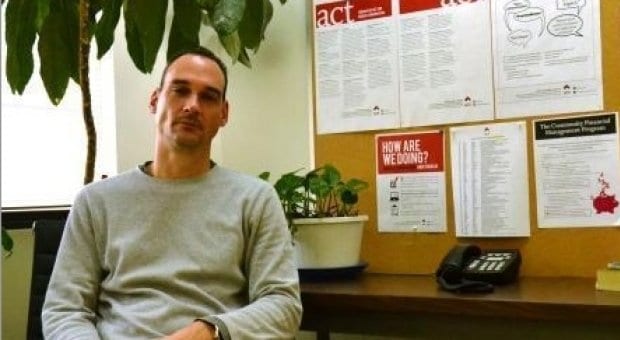The AIDS Committee of Toronto has appointed as its new executive director longtime staffer John Maxwell, who comes to the post with ideas that could radically change the way the organization serves gay men.
Maxwell has been working at ACT since 1991 in positions directing the agency’s communications, policy, and programs and services. He has also been the organization’s interim executive director since Hazelle Palmer left in October.
He takes the reins at a challenging time for ACT. Support from the federal government has been tepid throughout the Harper era, and there are indications it may wane in the future. As well, the organization has moved away from its signature fundraiser gala, Fashion Cares, and needs to develop new fundraising streams. ACT will begin a strategic planning process this fall to map out a new five-year plan.
In a difficult funding environment and with so many different AIDS service organizations in Toronto, Maxwell says it’s important that they are coordinated so as to avoid duplication of effort and provide the best services for the community.
But Maxwell says it may be time for a major shakeup in how the organization serves its community. He says ACT may consider becoming an organization focused on the broader health needs of gay men. “The strategic planning process will allow us to think about who do we serve and what are the gaps that we’re best placed to fill, whether that’s HIV or more broadly related to gay men’s health,” he says. “The reality is gay men face so many challenges, and the services don’t exist in this city. You try to get into counselling services, you try to get into substance abuse programs for gay men, there’s a waiting list. That’s a problem.”
AIDS service organizations in Vancouver and Montreal have reconfigured themselves on that model already. An offshoot of AIDS Vancouver became the Health Initiative for Men (HIM), and Montreal’s Action Séro-Zéro became Rézo. Both offer counselling, mental health and social-health programming.
“One of the things I want to do is start to have conversations with other organizations that do have programs for gay men — David Kelley Services, Rainbow Services at CAMH, Hassle-Free Clinic, Sherbourne Health Centre — and bring us all together and start to think about the services we are offering, how can we better coordinate them. I don’t know what that will become, maybe a virtual health centre,” Maxwell says.
Within Toronto’s network of AIDS service groups, Maxwell says, there remain opportunities for agencies to achieve efficiencies through cooperation while remaining independent of each other.
“We could have collaborative fundraising events. There could be opportunities for organizations to share on administrative costs. But I think that’s a conversation to be had by everybody involved, not just me or ACT,” he says.
One thing Maxwell is adamant about is that Fashion Cares will not be returning.
“The amount of net money that gets raised is not worth the amount of effort that goes in,” he says. “We’re looking at other ways in which we can build upon those who already give money in a direct-mail way. Monthly donors are one of the most efficient ways in which you can raise money.”


 Why you can trust Xtra
Why you can trust Xtra


